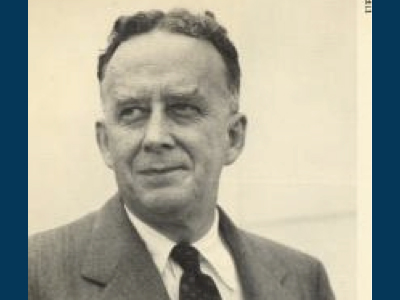
July 21, 1948
Philip C. Jessup, the acting U.S. representative to the United Nations, writes a memorandum to U.S. Secretary of State George Marshall, detailing why the U.S. should be opposed to putting supervisory troops in Jerusalem and elsewhere in Israel and Palestine. The memo contains seven points and is sent in response to a request by the U.N. mediator in Israel. The U.N. mediator had requested that U.S. Marines be temporarily stationed in Jerusalem to support an Israeli-Arab military truce agreement that had been signed July 18.
The memo argued that American troops should not be stationed in Jerusalem for these reasons:
1. American public opinion would be against sending troops to Jerusalem.
2. Public opposition would be reinforced by any injury or death sustained by U.S. troops.
3. Stationing troops would potentially further weaken Arab-U.S. relations.
4. Stationing troops would potentially strengthen Soviet propaganda against the U.S.
5. The U.S. was generally not interested in providing troops for U.N. missions and had made this clear.
6. The U.S. should oppose the U.N.’s insistence that showing force is necessary to impress both Arabs and Jews.
7. The U.S. should not grant [U.N. mediator Count] Bernadotte’s request because it did not go through the proper channels. This would hopefully dissuade him from directly requesting favors from the U.S. in the future.
Jessup’s memo is accepted, and the United States continues its policy of supporting diplomacy in the region while maintaining politically strategic military distance. The question of monitors or observers to maintain security in a future Palestinian entity or state persists in discussions about the West Bank‘s future.
